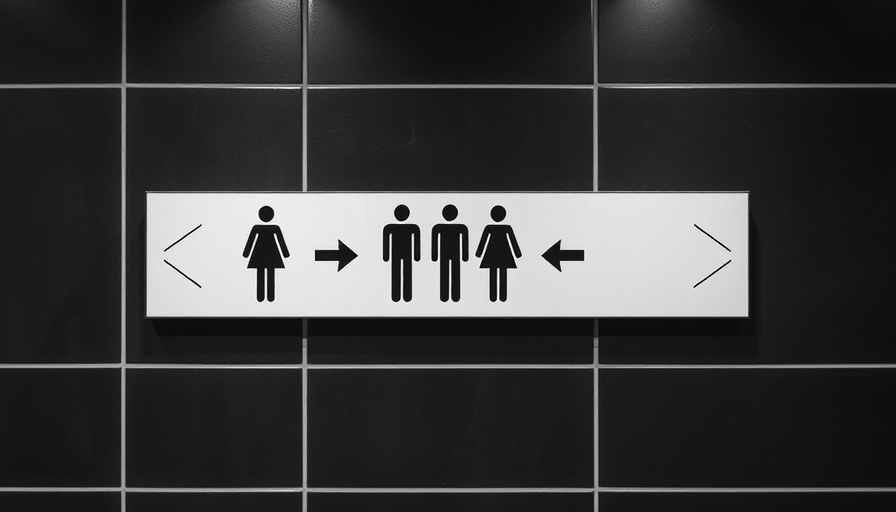
Understanding the Implications of Senate Bill 8
On September 22, 2025, Governor Greg Abbott signed Senate Bill 8 into law, a measure that has been described as a significant escalation in the ongoing Republican campaign against the rights of transgender individuals in Texas. This legislation not only attacks the rights of transgender people but also poses a serious threat to public institutions and the legal system.
The law mandates that transgender and gender non-conforming people use bathrooms that correspond to the sex assigned to them at birth in publicly operated buildings like schools and libraries. Andrea Segovia, a policy analyst for the Transgender Education Network of Texas, emphasizes that this law will create an environment where trans individuals feel less safe, restricting them from engaging in basic biological functions without fear of discrimination. Segovia states, "Every time that an anti-trans bill passes, it is another attempt at removing trans people from the public eye." This sentiment resonates deeply in communities that have fought against such legislation over the years, and reflects a growing frustration with the lack of support from major corporations and advocates that historically opposed these bills.
The Legal and Social Consequences
Senate Bill 8 allows the Texas Attorney General's Office to investigate compliance and impose massive fines on public entities that do not adhere to its stipulations. Reports of violations can lead to punitive assessments starting at $25,000, further institutionalizing a culture of surveillance against trans individuals. Critics, including legal experts, contend that these provisions are not only unconstitutional but reflect an alarming trend towards increased state control over individual rights. Nicholas Hite, a senior attorney at Lambda Legal, calls SB 8 "the most plainly unlawful, undemocratic legislation I’ve seen in recent history," highlighting its potential to stifle fundamental rights in Texas’ judicial landscape.
Community Response and Activism
The passage of SB 8 has sparked widespread outrage among LGBTQ+ advocates and allies. Activists have gathered to protest the law and express their discontent at the perceived attack on civil liberties. Segmenting public responses between cisgender and transgender individuals, Ash Hall of the ACLU notes the potential for harmful outcomes, stating that the law will encourage harmful policing by individuals seeking to enforce its provisions. Hall’s comments address a broader concern: The deliberate framing of the bill creates a societal divide that places marginalized groups at greater risk, rather than protecting them.
The Future of Trans Rights in Texas
As the law takes effect in December, it will transform the landscape for both public entities and transgender individuals in Texas. With legal challenges anticipated, organizations like the ACLU are preparing to contest the law’s constitutionality. However, SB 8 has created additional barriers for those seeking to challenge its legitimacy in court, including provisions for sovereign immunity that protect the state and municipalities from legal repercussions.
The situation in Texas echoes a growing national trend where similar legislation is gaining traction, reflecting the challenges faced by LGBTQ+ communities across the country. Jacob Reyes of GLAAD articulates deep concern, arguing that SB 8 aims to establish a harmful precedent against marginalized communities. "In reality, trans folks are parts of Texas families, workplaces, schools, and communities, and we are here to stay," Reyes emphasizes, thereby reinforcing trans visibility and resilience despite systemic oppression.
The Path Forward: Advocacy and Solidarity
As advocates gear up for legal battles and public demonstrations, it is vital for allies to remain informed and involved. The growing community response against SB 8 signifies a profound rallying cry for those dedicated to upholding the rights of all individuals, regardless of gender identity. This moment calls for solidarity and active participation, whether through advocacy, legal support, or public awareness campaigns. The fight against legislation like SB 8 isn’t just about one law; it's about shaping a future where everyone can live freely and authentically.
 Add Row
Add Row  Add
Add 




Write A Comment